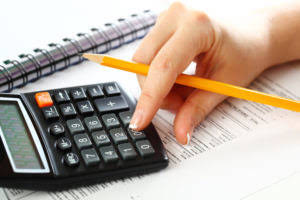Content

Oftentimes, a check may have been written by a company, recorded in the general ledger, but not yet shown on the company’s bank account statement. The term outstanding checks refers to those checks that have been recorded by a company as being written, but not yet cleared and posted to the account’s statement by the company’s bank. An outstanding check refers to a check that a payee has not yet deposited or cashed. The check is still active and can be presented for payment, but it’s unaccounted for in the payer’s bank balance.

This is a vital accounting task, where a company ensures its records match the bank’s records. Since an outstanding check represents an amount deducted from the company’s records but not yet from its bank balance, it needs to be accounted for in this process. For the checks to be cleared, the recipient must deposit the check at their bank, and the issuing bank must confirm the availability of sufficient funds to cover the check’s amount.
Related Finance Terms
A bank reconciliation should be completed at regular intervals for all bank accounts, to ensure that a company’s cash records are correct. Otherwise, it may find that cash balances are much lower than expected, resulting in bounced checks or overdraft fees. A bank reconciliation will also detect some types of fraud after the fact; this information can be used to design better controls over the receipt and payment of cash. The printout lists each outstanding check in check number order and will include the date the check was issued, the amount of the check, and the payee. An NSF check is a check that has not been honored by the bank due to insufficient funds in the entity’s bank accounts.

Any outstanding checks that have still not cleared the bank will need to remain on the outstanding check list portion of the bank reconciliation. Any deposits in transit that do not appear on the bank statement will remain reconciling items, but will need to be researched with the bank. Because all checks that have been written are immediately recorded in the company’s Cash account, there outstanding check meaning is no need to adjust the company’s records for the outstanding checks. Bank charges are thus service charges and fees deducted for the bank’s processing of the business’ checking account activity. This can also include monthly charges or charges from overdrawing your account. If you have earned any interest on your bank account balance, but they must be added to the cash account.
Accounts receivable
When a check has been written but has yet to be deposited, it can lead to a plethora of accounting errors. Though prone to causing issues, outstanding checks can be easily kept track of and avoided by employing simple accounting systems. For example, a check may have been written and recorded by a company on December 31. The reconciliation process will identify these differences as due to outstanding checks. An outstanding check is crucial in business and finance because it represents a financial obligation that has yet to be fulfilled.
They represent pending transactions where the funds have not yet been deducted from the issuer’s account. These checks can pose risks such as overdrawing the account, potential fraud, accounting discrepancies, and delayed financial reporting. Bouncing an outstanding check can lead to financial consequences, such as fees imposed by the bank, damage to your credit rating, and potential legal actions from the payee. Be mindful of what outstanding checks you’ve written before drawing down your bank balance. If you don’t account for outstanding checks properly, then you risk spending the money for the check on something else.
Cashier’s Check
It is also possible (perhaps likely) that neither balance is the true balance. Checks are a useful financial tool that makes payments and money transfers more convenient and potentially safer than cash. Different checks are designed for different purposes and for different risk levels. Learning how to use a check correctly can provide you with a secure payment method that you may need or prefer to use in certain circumstances. Both a certified check and a cashier’s check are considered more secure checks than personal checks.
- A debit card is a payment card connected to a checking account, and you can use it to make both online and in-person purchases, where cards are accepted.
- Oftentimes, a check may have been written by a company, recorded in the general ledger, but not yet shown on the company’s bank account statement.
- It may also damage your relationship with the vendor or person you gave the check to.
- An outstanding check remains a liability of the payer until such time as the payee presents the check for payment, which then eliminates the liability.
- Outstanding checks are thus typically identified as part of the bank account reconciliation process.
- The check may also be delayed if the issuing entity puts off mailing the check for any reason.
发表回复